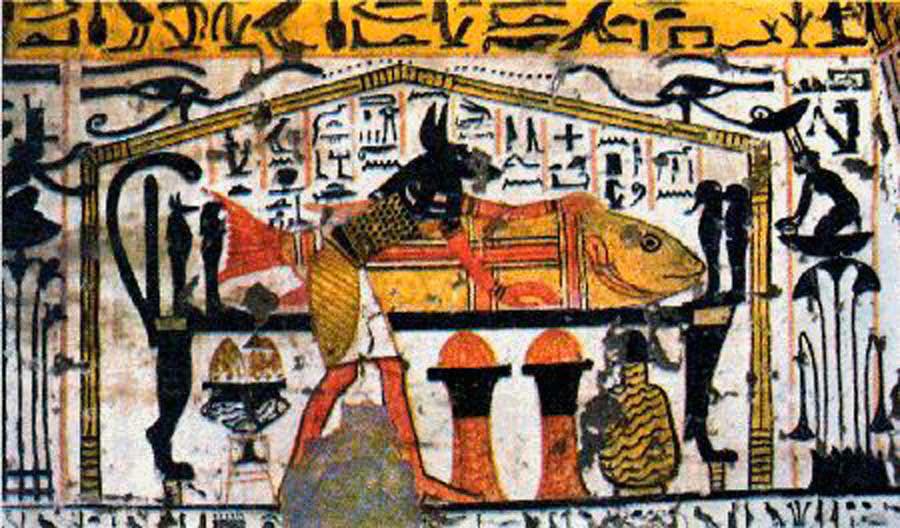Every year, Egyptians celebrate Sham El Nessim, a Pharaonic tradition dates back to when the Nile River left behind trails of rotting fish.
Today marks Sham El Nessim traditional celebration where Egyptians gather in public spaces for picnic trips to enjoy a day out.
Eating Feseekh — salted smelly fish — is an impartial tradition of Sham El Nessim experience and it is perhaps the most distinctive food ritual associated with the day.
While it takes strong stomach to eat Feseekh, some prefer to have Herrings or Ringa — smoked salted fish that is less intense. Some get creative with their serving ideas and homemade recipes; but most Egyptians serve Feseekh with lettuce, onions, brown bread, salad, eggs, lots of greens and lime for a stronger citrus flavour.
One of the most common tradition associated with Sham El Nessim is colouring eggs. When people are not eating Feseekh in public parks, you might find them colouring eggs, especially if they are accompanying children.
Sham El Nessim is translated from Arabic as ‘smelling the breeze’ and it is celebrated every year on the Monday after Eastern Orthodox Easter. Although Sham El-Nessim falls on the day after Christians celebrate Easter, the festival is not classified or related to a religious event, and is celebrated as a national holiday.
It dates back to 4,500 years ago when it was called Shamo or ‘renewal of life’ in reference to the beginning of the agricultural growing season.
Nowadays, Sham El Nessim is a national holiday where by Egyptians go for picnic in public parks, go to the zoo and hangout outdoor spaces.
Egypt’s Health of Ministry usually warns Egyptians from food poisoning that might result from the consumption of rotten fish; however, cases of food poisoning still occur.






Comment (1)
[…] and it is perhaps the most distinctive food ritual associated with the day.” – https://egyptianstreets.com/2017/04/17/salted-fish-carries-taste-of-spring-all-way-from-pharaonic-eg… Ancient technique of salt production preserved in Tibet – […]